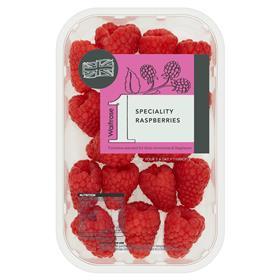
Private label food has taken huge strides over the last decade in Britain, undergoing a reputational makeover that has seen it move from being perceived as cheap and poor tasting to, in many cases, equal or even superior to brands.
Led by a squeeze on incomes following the recession of 2008 and the rise of the discounters, private label has seen an extraordinary growth spurt in the UK that is showing no signs of stopping. Across Europe, private label market share dropped 0.6 percentage points to 38.8 per cent in 2015, according to an IRI report published last year. In the UK, meanwhile, it continued to rise, up 0.4 points to 51.8 per cent.
Observers of Kantar Worldpanel’s regular market reports will have noted the frequency with which own-label ranges have been credited with driving sales growth across the stores. In its latest report this month, for example, Kantar head of retail and consumer insight Fraser McKevitt noted that premium own-label lines are seeing “huge growth”, while he said of Christmas trading: “Thanks to continued investment in premium own-label brands across the major retailers in 2016, such products finished the year with record 12-week sales of almost one billion pounds.”
What was particularly interesting was the extent to which retailers put own label at the heart of their marketing campaigns, and as the price war makes shelf price less of a differentiator between stores, their own brands start to become key points of difference.
Of course brands have never been a big feature of the fresh produce aisles, and it would be wrong to suggest there isn’t a place for them. As Kantar consumer insights director Chris Cowan pointed out in a column for FPJ in May: “Retailers that neglect their branded fruit and veg offering may be missing out on the opportunity to drive sales for their own-label lines too. In fact, a more nuanced understanding of the relationship between own label and brands may hold the key to success in fresh produce.”
But what is clear is that the case for getting listed will have to be more compelling than ever.
How the leading supermarkets are upping the anteon own label
Tesco
When Tesco introduced its new farm brands, with names such as Suntrail and Rosedene Farms, it faced everything from derision to legal threats as suppliers, industry bodies and analysts queued up to criticise. And yet the supermarket looks set to have the last laugh, with recent sales figures suggesting the lines are resonating with consumers – 64 per cent of Tesco shoppers purchased from the range in the first three months of 2017.
Sainsbury’s
Sainsbury’s has stated that some 25 per cent of its own-brand food is new or improved this year compared to two years ago, and it continues to launch innovations under its own name. The bySainsbury’s brand is regularly being refreshed and updated, and with a marketing campaign focused around enjoyment of food and cooking, own label can expect to play a central role.
Asda
Times have been challenging for Asda of late, but the recent relaunch of its budget Farm Stores range is already helping revive its fortunes, with own-label value sales up 20 per cent in the latest quarter. The range, which Asda said is about “reconnecting with its heritage”, launched in April with items including oranges, kiwis, grapes, topfruit, lemons, white potatoes, brown onions and cherry tomatoes.
Morrisons
Morrisons’ determination to expand the reach of its own-label products was underscored when it struck a deal to list hundreds of its lines on Amazon Fresh in 2016. Equally, its The Best range has been credited with bringing more affluent shoppers into Morrisons: in the latest Kantar figures, Morrisons is noted as the fastest-growing big-four retailer as it looks to hit the comeback trail.
The Co-op
Convenience chain Co-op made no bones about its desire to get shoppers buying more own-label products when it announced last year that members would receive a five per cent reward for any purchase of own-brand Co-op products, with a further one per cent going to local causes. Part of a wider rebranding exercise, it also launched a new premium food and drink line under the Irresistible brand in the autumn.
Waitrose
The introduction of new top-tier own-label range Waitrose 1 last year has been a big hit for the supermarket, which has frequently flagged up strong sales for the line in its trading updates. Launching with 500 products and set to rise to over 750 this year, products range from premium fresh produce to indulgent treats. Among its 10 best-selling lines are Extra Large Avocados and Speciality Raspberries, with Mild Pea Shoots & Edible Flowers due to launch shortly.
Aldi
There’s been a marked shift in the cut of Aldi’s gib of late, with its famed focus on price now going hand-in-hand with highlighting the quality of its products. That’s particularly true of its Specially Selected range, which it is holding up as the equal of anything on the high street, while its fresh produce has received warm reviews. Perhaps surprisingly, Kantar figures show that among premium own-label tiers, Aldi is the one that has the highest percentage of sales across all the supermarkets.
Lidl
Lidl has long been a master of the own brand, with extensive lines like its Oaklands fruit and veg range well established in stores. Most recently, it launched a range of fun-size veg into the range in an attempt to get kids enthused about vegetables, and with a £1.5 billion expansion of the discounter’s UK operations underway, expect a continuation of the strategy.



